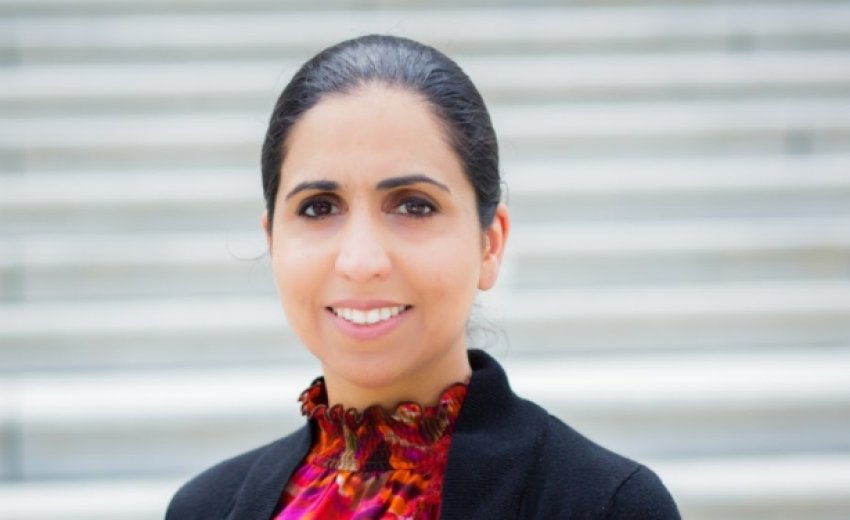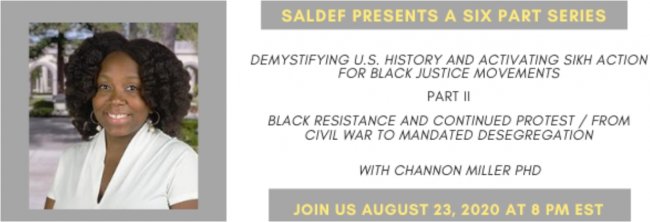On the surface, American ideals seem in many ways to mirror Sikh ideals. Equality and equal rights under the law, liberty, and justice for all are terms we hear frequently growing up in America. As Sikhs, we believe in one God, Ik Onkar, omnipresent, in everything and everyone. From that central belief of oneness comes the fundamental belief that we are all equal; and as Sikhs, we must stand up for those who are oppressed. While on the surface there appear to be similarities, if we dig deeper, there are many clues that suggest this is not the whole story.
For example, many immigration stories omit the fact that not all immigrants were welcomed into the United States. The Immigration and Nationality Act of 1965 reversed the draconian laws that imposed quotas on immigration and restricted the number of people from outside Western European countries. Certain groups of people were considered lesser and undesirable. Absent in the discussions is the role the civil rights movement played in pushing for this law to pass amidst significant opposition and in highlighting the discriminatory nature of quotas that applied only to certain countries. Without the Civil Rights Movement, the path to social mobility through education, which my father and so many others took advantage of, would not have existed.
My father, like many other immigrants, shared his coming to America story with me as a child growing up; he came with a couple of dollars in his pocket, inspired by this land of great opportunity and promise. He worked extremely hard and made a success of himself and if we worked hard too, we could also be successful in this great country. Absent from our household discussions were explanations of the inequities in the world around us, especially when it came to the African American experience. I lived in Maryland when I was younger and saw poverty and homelessness primarily among people of color in Washington D.C. As a young child, I asked my mother why these people were on the street. She said they didn’t have a home, to which I remember promptly replying, they should just come live with us. After I was told no, I protested for some time and then, realizing my protests were going nowhere, later acquiesced, confused, and frustrated by this world that didn’t appear to conform to the simple parameters and ideals which had been imparted to me.
I am still on my journey but now, like for so many others, the bigger picture is no longer elusive. With the videos of black men and women, such as George Floyd and Breonna Taylor, being murdered by the police in broad daylight or their own homes, the injustice of our society is staring us directly in the face. It is demanding us to not look away and not retreat into more comfortable spaces. It is forcing us to ask why and in answering that question, as Sikhs, it is challenging us to live up to the ideals the guru set for us of protecting and standing up for the rights of the oppressed and fighting for justice for all. It also demands us to challenge our narrative and ask whether consciously or unconsciously we are contributing to this unequal and unjust society. This is hard but necessary work. It is necessary not just from a social justice perspective but to live as the Gurus have guided us to.
We can no longer hide behind our willful ignorance and complacency. The first step in the journey is to educate ourselves. That is why SALDEF has chosen to put together a 6 part series on "Demystifying U.S. History and Activating Sikh Action for Black Justice Movements". It is the first series of its kind and we will hear from Sikh and African American scholars whose life work is to understand the construction of race in America and the inequities that have flowed from it. As Sikhs, we need to understand the realities behind the American Dream and ensure that everyone is afforded human dignity, liberty, and justice. These are not just words thrown around in American vernacular but a fundamental part of our faith as Sikhs. Unjust systems do not serve anyone. They take us farther away from oneness and shared humanity. They take us away from Ik Onkar.
To Register Please CLICK HERE
~~~~~~~~~~~~~~~~~~~~~~~~~~~~~~~~~
Editor's note: The 'Demystifying' series has already featured one of it's part series last weekend. The session featured Dr. Nneka D. Dennie and was titled "Colonial Uprising and the Creation of 'Race' ".
Make sure to register so you don't miss the next session:

